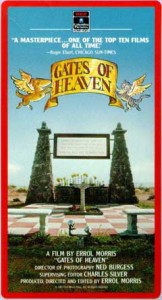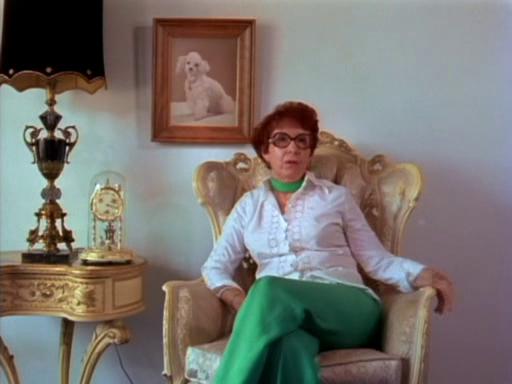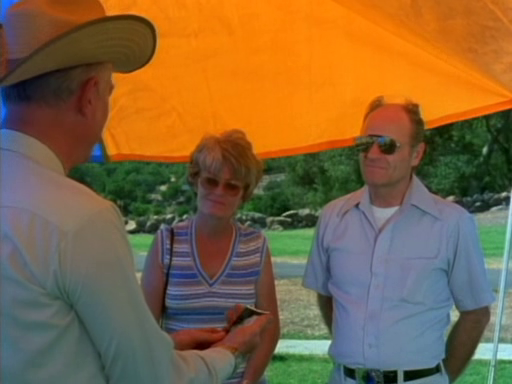Gates of Heaven (1978)
“There’s your dog; your dog’s dead. But where’s the thing that made it move? It had to be something, didn’t it?”
|
Synopsis: |
|
Genres, Themes, Actors, and Directors:
Response to Peary’s Review: I find Gates of Heaven more inherently intriguing than Peary — though I am troubled by the fact that Morris seems to be presenting his participants in the quirkiest possible light, strategically editing and interweaving their interview clips so that they all come across as either deluded, arrogant, or ridiculous. It’s no surprise that the main cemetery on display, Bubbling Well Pet Memorial Park in Napa Valley, makes no mention whatsoever of the documentary on its website. One scene in particular — in which Bubbling Well’s founder fawns over a photo of a couple’s unusual-looking dog (“This is a most unusual, most unusual [dog] — I just can say I’ve never seen anything like it…”) — stands out as especially mean-spirited on Morris’s part. Knowing the unique direction Morris would eventually take with his documentaries (i.e., his use of an “Interrotron” machine, allowing his subjects to look directly at him while speaking to the camera), this early film feels quaint, stylistically-speaking, in comparison. Yet Morris’s characteristically droll, highly philosophical approach to his material is in clear evidence: as Roger Ebert noted in his overview of the title on his “Top 10 Favorite Films” list, “Morris is not concerned with his apparent subject. He has made a film about life and death, pride and shame, deception and betrayal, and the stubborn quirkiness of human nature.” Whether one agrees with Peary’s more cynical perspective, or Ebert’s loftier one, this cult favorite should be seen at least once, simply for its notoriety. Note: It’s interesting that Peary fails to mention that this film was the basis for Les Blank’s short documentary entitled “Werner Herzog Eats His Shoe”; click here to read more about the bet that led to this event, as well as Morris’s eclectic background in general. Redeeming Qualities and Moments: Must See? Categories
Links: |



One thought on “Gates of Heaven (1978)”
First viewing. A once-must – as a unique and fascinating look at human nature, as it’s seen against its relationship (whether removed or close) with animals.
Not knowing anything other than what’s presented to us, this doc comes across to me as cool-headed and restrained but also made out of genuine interest in the subject being explored. (One best gets the sense of that from watching the very last couple interviewed.)
If one sets out – as Morris did – to become a documentary filmmaker (and Morris has, subsequently, had a considerably long career as one), it would seem counter-productive to approach those being interviewed with the idea of making any of them seem “pathetic” – or privately feeling “mean-spirited” towards them. That would not be the route to a successful documentary – and, I imagine, you would have quite a hard time gaining the trust of those you are filming. They would, I think, sense that you are not on their side. And even if the filmmaker is not particularly “on their side”, the documentary would suffer from a lack of objectivity.
I didn’t find anything here to laugh at, particularly. Not sure why anyone would find anything unintentionally funny.
It would, no doubt, be easy to read into what’s presented and decide for ourselves whether anything is quirky or odd. Such interpretations may or may not be accurate and could easily be totally dependent on personal bias.
Overall, I find the film very moving – and a valuable peek into the kind of territory not commonly explored. There’s also interesting information to obtain: I found it intriguing, for example, to learn that crossbreeds make better pets than purebreds. Though it’s speculation, it suggests that purebreds carry with them a sense of superiority that is not particularly warranted (much like white supremacists?).
At just over 80 minutes, the film moves very quickly, with economic editing. In it, we learn a lot (or I did) about the the depth of spiritual and emotional connection.